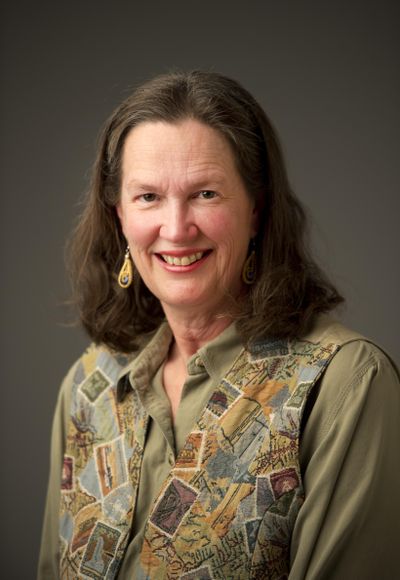This column reflects the opinion of the writer. Learn about the differences between a news story and an opinion column.
Sue Lani Madsen: Library’s “Drag Queen Story Hour” not whole story on gender fluidity

The Spokane Public Library occasionally holds special themed events for children’s story time. “This summer, Gonzaga basketball players will be reading to kids as part of our festivities around the Smithsonian exhibit called Hometown Teams,” according to library spokeswoman Amanda Donovan. Other recent themes have included firefighters on safety, 911 dispatchers on what to do in an emergency, and Mayor David Condon on keeping rivers clean. No controversy there.
And then they scheduled story hour drag queens.
The Drag Queen Story Hour website refers to its “queens” as performers, men in exaggerated hair and makeup that comprises a caricature of biological women. The art form builds on ancient historical traditions of gender-bending jesters. Essentially, they’re clowns who usually perform in adult cabarets instead of circuses.
So why create a nationwide nonprofit corporation focused on adult clowns reading books to children?
The librarians’ code of ethics is all about minimal censorship and more reading. If you support the First Amendment but believe a particular program or book is inappropriate for you or your child, don’t attend or don’t read it.
But the drag queens? Their motive isn’t promoting literacy. The performance is designed for impressionable 3- to 8-year-olds to normalize gender fluidity and “give kids glamorous, positive, and unabashedly queer role models,” according to Jonathan Hamilt of Drag Queen Story Hour. The library says it creates a teachable moment. And so it has.
For instance, the correct term for fear of a clown and his exaggerated facial makeup is coulrophobia. If you or your child experience coulrophobia, then avoid attending Drag Queen Story Hour. Isn’t learning new words fun?
But that’s just the reader. What about the books? “Youth services librarians select the books they read each week at Story Time,” according to Donovan. “They also select the books read by any of our guest presenters.”
Hamilt cheerfully provided a list of recommendations. One of them also appears on the Spokane Public Library website as a “Staff Pick for Kids.” In the preschool book, “Julian is a Mermaid” by Jessica Love, Julian is worried how his abuela (the Spanish word for grandmother) will react to his desire to dress up like the glamorous, swishy women he sees on the subway.
“Julian is a Mermaid” was written as a trans indoctrination book. Parents have to decide if this is a cult religion they want their children indoctrinated into, according to Kaeley Triller Harms. Harms is co-founder of Hands Across the Aisle, an intersectional coalition of liberal feminists and conservative women of faith who disagree on much but agree on the hazards to society of normalizing gender fluidity. It’s an unpopular point of view that frequently earns group members ugly threats from the transgender community.
A search of the Spokane Public Library website found only one book taking on the unfashionable side of the debate. Ryan T. Anderson’s “When Harry Became Sally: Responding To the Transgender Moment” discusses how the “most beneficial therapies focus on helping people accept themselves and live in harmony with their bodies.”
Other resources for this teachable moment – not available at the library – include “Trans Life Survivors” by Walt Heyer, documenting the stories of 30 detransitioners who realized they’d made a mistake. The existence of people who detransition, embracing their biological sex after physically modifying a healthy body, are an uncomfortable truth for transgender activists.
For teenagers, the Pique Resilience Project provides insights into the cultural pressures on teens to be gender fluid, and the physical and emotional harm of rejecting their own bodies. The young women who founded the coalition adamantly state “all four of us are left-leaning and do not adopt conservative beliefs.” They want to tell their stories to help others avoid the peer pressure to conform to what used to be called nonconformity.
Children need protection from too-early sexualization and positive role models to emulate. For the now-countercultural parents who think biology matters, Drag Queen Story Hour has created mistrust in the judgment of the youth services librarians. Donovan recommended calling the local library to find out who the messenger is and what they’ll be reading.
Here’s my advice. Stick to the classics like “William’s Doll” by Charlotte Zolotow, part of the free-to-be-yourself movement of the 1970s. It opened up the idea of gender nonconformity while reinforcing positive adult roles. William’s grandmother explains having a doll will help William practice how to be a good father. It didn’t tell William he must be a girl because he wanted a doll.
